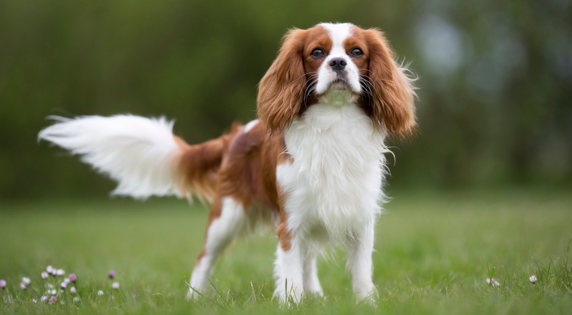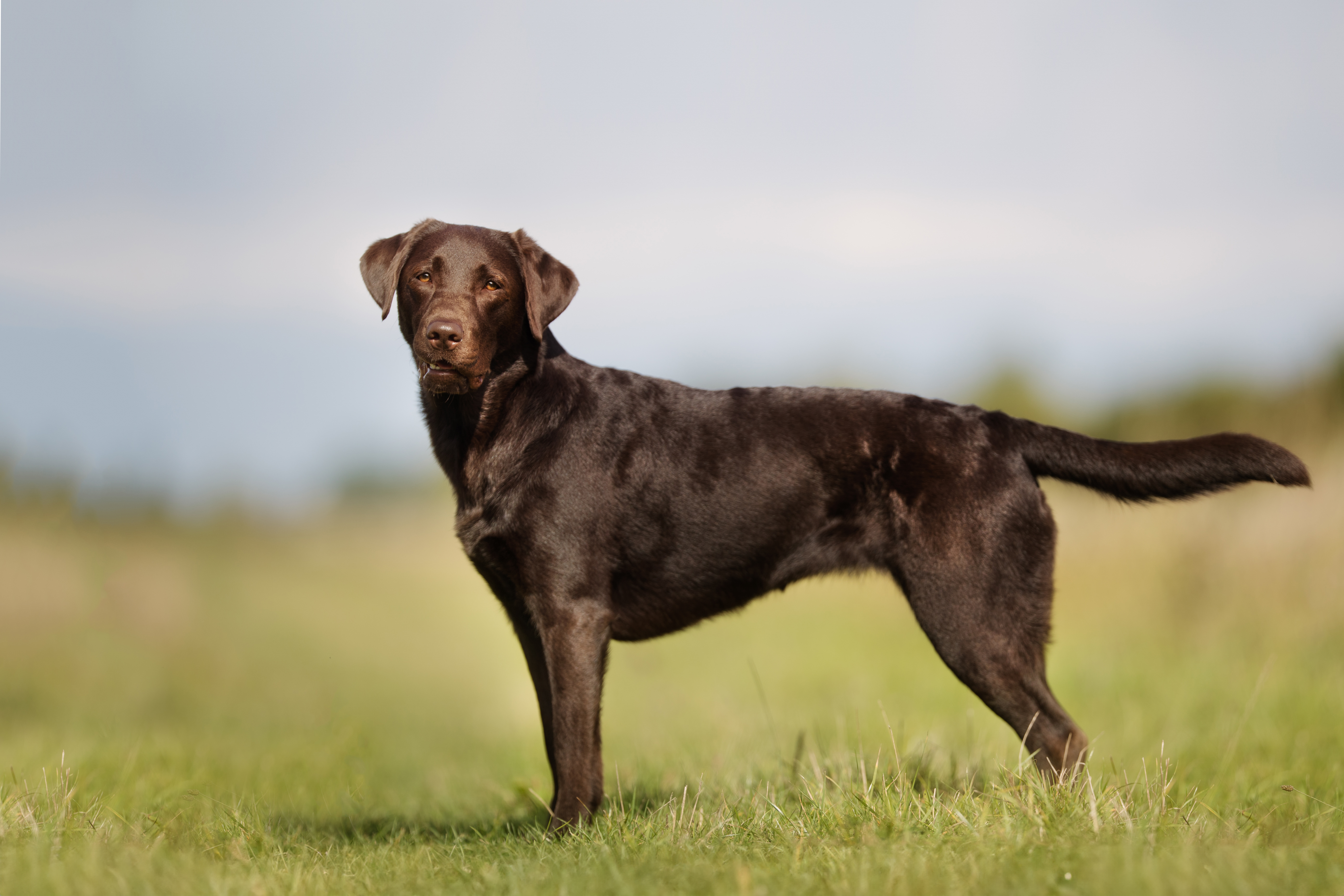
What is the best dog food?
The answer to the above question is subjective and depends on your own preference and that of your dog. We’ve made an overview of the most popular diets in every category, using our extensive range of dog foods.
The Cavalier King Charles Spaniel is a charming and affectionate companion dog known for its gentle nature and elegant appearance. Originally bred as a companion for royalty, this breed is now beloved by families and individuals alike for its friendly disposition and adaptability.

The Cavalier King Charles Spaniel originated in the United Kingdom and was bred between the 16th and 18th centuries as a companion dog for royalty. King Charles II was a well-known admirer of this breed and gave it his name. After his death, the breed’s popularity declined, but thanks to the efforts of breeders, including the Dukes of Marlborough, the breed was preserved and further developed.
The Cavalier King Charles Spaniel is a gentle, friendly dog with an affectionate nature. It is social, patient, and easily adapts to different living environments. These dogs are playful and can sometimes be a little headstrong, but they are generally easy to train and eager to please their owner. They are suitable for families with children and get along well with other pets. However, they do not cope well with being alone and need companionship.
The Cavalier King Charles Spaniel has a compact and well-proportioned body with a narrow muzzle, long floppy ears, and large round eyes that give it an endearing expression. Its coat is long and soft, may be slightly wavy, and comes in various colour combinations including Blenheim, tricolour, ruby, and black & tan.
The Cavalier King Charles is a friendly and affectionate companion dog with moderate exercise needs. A daily walk and playtime of 45 minutes to an hour is usually enough to keep it physically and mentally satisfied. It enjoys relaxed walks, games in the house or garden, and short scent or fetch games, especially when together with its owner. Although not a highly athletic dog, the Cavalier likes to join in with whatever you do—as long as it’s together. Lack of exercise can lead to obesity or boredom, but intense physical activity is usually unnecessary or even undesirable.
The long and soft coat of the Cavalier King Charles Spaniel requires regular grooming to prevent tangles and dirt. Daily brushing helps keep the coat in good condition. It’s also important to keep the ears clean, trim the nails regularly, and care for the teeth through frequent brushing. Regular check-ups with the vet contribute to the dog’s overall health.
The Cavalier King Charles Spaniel is a loving and affectionate breed but is unfortunately prone to several hereditary conditions. Mitral valve disease (a type of heart disease) is very common in this breed, sometimes appearing at a young age. This condition affects the heart valve and can lead to heart failure, making regular vet check-ups essential. The Cavalier is also susceptible to Syringomyelia, a neurological disorder where cavities form in the spinal cord due to pressure in the skull, which can cause pain and behavioural changes. Eye disorders such as progressive retinal atrophy (PRA) and cataracts are also seen and may impair vision. Additionally, allergies, ear infections, and food intolerances are not uncommon, as are patellar luxation (dislocated kneecap) and hip dysplasia, though these occur less frequently. Lastly, Cavaliers can be prone to epilepsy and hypothyroidism. Regular veterinary check-ups and early detection are key to giving them a healthy life.
While the Cavalier King Charles Spaniel has unique characteristics, there are other breeds that share similar traits and appearance:
When getting a Cavalier King Charles Spaniel, it’s important to choose a responsible breeder who prioritises the puppies’ physical and mental wellbeing. A good breeder will be transparent about health testing and offer guidance to ensure the puppy is a good fit for your family. The price of a Cavalier King Charles Spaniel can vary depending on factors such as breeding care and health tests. While price matters, the puppy’s health and socialisation are the most important aspects.
With its friendly and affectionate nature, the Cavalier King Charles Spaniel is a great fit for a family willing to invest time and attention in caring for and raising the dog. If you’re considering bringing a Cavalier King Charles Spaniel into your home, it’s important to understand the traits you’ll need to care for it properly. Below are a few points to help you decide if this dog is right for you:
The Cavalier King Charles Spaniel is ideal for someone who:
All in all, the Cavalier King Charles Spaniel is an excellent choice for anyone looking for a gentle and loyal companion dog.
Thanks to its friendly and affectionate nature, the Cavalier King Charles Spaniel is suitable for both first-time and experienced dog owners. Its adaptability and social temperament make it an ideal family dog, as long as it receives proper care and attention.
The Cavalier King Charles Spaniel is suitable for both beginners and experienced owners because of its social, gentle nature and adaptability, provided sufficient time and attention is given.

The answer to the above question is subjective and depends on your own preference and that of your dog. We’ve made an overview of the most popular diets in every category, using our extensive range of dog foods.

This blog article discusses 10 commonly kept medium-sized dog breeds with the most important characteristics associated with these breeds. Dogs in this category have an adult weight between 10-25 kg. This is our top 10 medium dog breeds. Looking for a different breed? Check out our dog breeds page.

If you've ever owned a dog, you'll know that every dog is unique. Dogs can have breed-specific characteristics, though, like joint or coat issues. To support these specific characteristics, Royal Canin has created special nutrition that meets the needs of individual dog breeds. Read all about breed-specific dog food in this article!

Add products to view your basket
We use cookies to help us serve you better and more personally. Functional cookies ensure that the website works properly and have an analytical function. We also use technology to track your behaviour anonymously, both inside and outside our website. Personal data and cookies may be used for personalisation or advertising. Want to know more? Read our privacy policy and cookie statement here. If you choose to reject, we will only place functional and analytical cookies.
